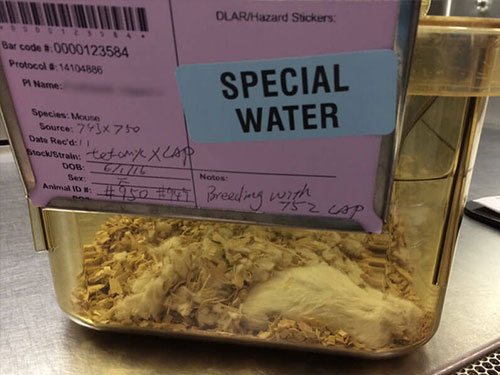‘Shame on Pitt!’ PETA Protestor Disrupts Board Meeting to Speak Up for Mice
As members of the University of Pittsburgh (Pitt) Board of Trustees arrived for their meeting on Wednesday morning, a group of PETA supporters, including Pittsburgh residents and Pitt students, met them outside the William Pitt Union for a spirited protest against the school’s painful and pointless sepsis experiments on mice.

As the board members settled in for their meeting, they likely thought that the protests were over for the day. They thought wrong. A PETA supporter disrupted the meeting, shouting, “Shame on Pitt!” as she walked around the room brandishing a sign that read, “End Useless Sepsis Experiments on Mice.”
In these abusive tests, experimenters puncture mice’s intestines so that fecal matter and bacteria spill into their abdomens, producing sepsis—a life-threatening reaction to severe infection. (Watch the stomach-turning video showing how this procedure is done.) Racked with pain, the mice struggle to breathe and finally succumb to multi-organ failure. PETA’s eyewitness exposé of Pitt’s laboratories revealed that many mice forced to endure this torturous procedure were, as one Pitt veterinarian described it, “falling over dead” inside their cages.

A 2013 landmark study proved the utter irrelevance of results of mice sepsis experiments for the treatment of human sepsis, because of vast biological differences between the species. The study compelled the director of the National Institutes of Health, Dr. Francis Collins, to make this comment regarding the 150 drugs that successfully treat sepsis in mouse experiments but fail in humans: “No wonder drugs designed for the mice failed in humans: they were, in fact, treating different conditions!” In spite of this, Pitt experimenter Rajesh Aneja has received $1.4 million in federal funding to conduct these cruel and worthless sepsis experiments on mice.
Join PETA in calling on Pitt to end these experiments on mice today and to adopt modern, animal-free methods of research that will actually help human patients.

